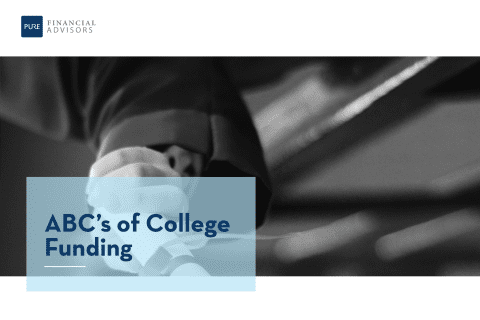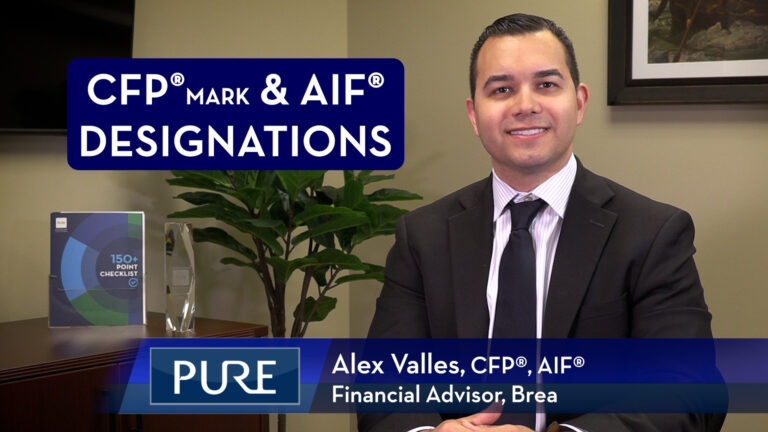If you want to help your child pay for college, or even cover their whole education expense, diverting money earmarked for retirement savings or taking withdrawals from your employer-sponsored retirement plan is one of the fastest ways to derail your retirement. Bryan Ross, CFP®, AIF®, financial planner at Pure Financial Advisors, covers the basics on saving for college.
FREE GUIDE | Download the ABCs of College Funding:
Transcript
If you want to help your child pay for college, or even cover the whole expense, diverting money earmarked for retirement savings or taking withdrawals from your employer-sponsored retirement plan is one of the fastest ways to derail your retirement. Even taking a closer look at the potential cost of sending your children to college can be a scary thing.
But, it doesn’t have to be that scary. There are a number of Federal tax-advantaged savings plans out there that are meant to encourage and help families save for future educational costs: 529 Plans, Coverdell Accounts, and Prepaid Tuition Accounts. Parents, Grandparents, and students are all eligible to open accounts. Each of these investment accounts has its own set of rules and guidelines related to contribution limits, eligibility based on income, and age restrictions. It is important to know about the pros and cons of each plan to determine which will be the most appropriate for you.
Once you have decided which investment plan will work best for you, the next step is to create a realistic savings plan based on how old your child is now and how much you anticipate contributing to their education. In the last 20 years, college expenses have grown at an annual rate of about 7%. Make sure to factor that into your calculations or you’ll fall short of your goal.
Studies show that families that put a plan in place save twice as much as those that don’t have a plan. Don’t be paralyzed by the numbers! The earlier you start saving the easier it will be to reach your goals. If you need help, working with a financial planner can help you incorporate college savings into your financial plan and help you stay on track.
Subscribe to our YouTube channel.
IMPORTANT DISCLOSURES:
• Investment Advisory and Financial Planning Services are offered through Pure Financial Advisors, LLC, a Registered Investment Advisor.
• Pure Financial Advisors LLC does not offer tax or legal advice. Consult with your tax advisor or attorney regarding specific situations.
• Opinions expressed are subject to change without notice and are not intended as investment advice or to predict future performance.
• Investing involves risk including the potential loss of principal. No investment strategy can guarantee a profit or protect against loss in periods of declining values.
• All information is believed to be from reliable sources; however, we make no representation as to its completeness or accuracy.
• Intended for educational purposes only and are not intended as individualized advice or a guarantee that you will achieve a desired result. Before implementing any strategies discussed you should consult your tax and financial advisors.
CFP® – The CERTIFIED FINANCIAL PLANNER™ certification is by the Certified Financial Planner Board of Standards, Inc. To attain the right to use the CFP® designation, an individual must satisfactorily fulfill education, experience and ethics requirements as well as pass a comprehensive exam. Thirty hours of continuing education is required every two years to maintain the designation.
AIF® – Accredited Investment Fiduciary designation is administered by the Center for Fiduciary Studies fi360. To receive the AIF Designation, an individual must meet prerequisite criteria, complete a training program, and pass a comprehensive examination. Six hours of continuing education is required annually to maintain the designation.













